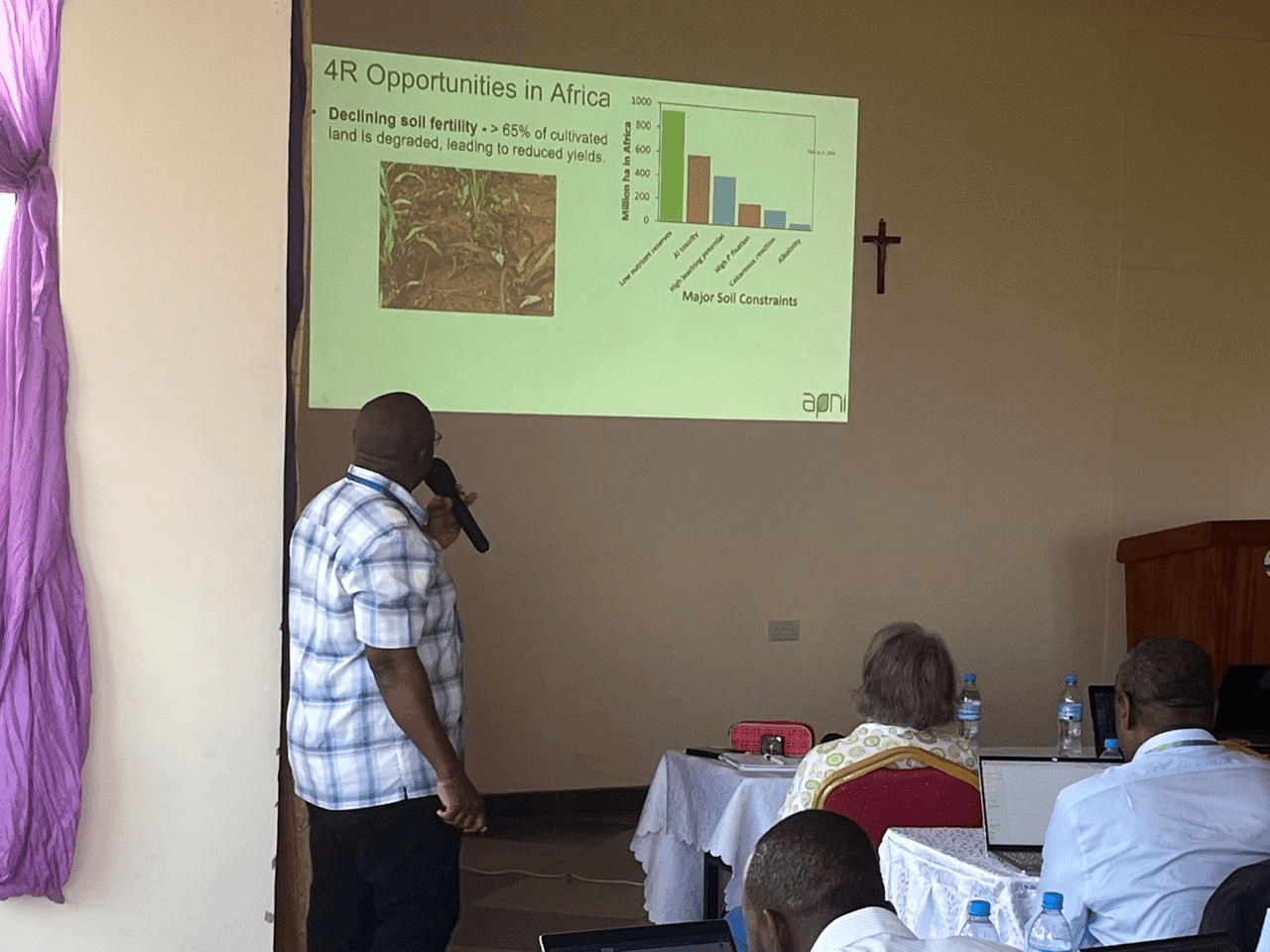APNI Scientists Highlight Pathways to Sustainable Productivity at MWECAU–SSSEA 2025 Conference
At the 6th Mwenge Catholic University (MWECAU) and 50th Soil Science Society of East Africa (SSSEA) International Conference held in Moshi, Kilimanjaro, Tanzania, scientists from the African Plant Nutrition Institute (APNI) shared groundbreaking research and innovations aimed at transforming African agriculture toward higher productivity and sustainability.
Held under the theme Catalyzing Knowledge Transformations to Promote Ecosystem Resilience in Tropical Environments, the conference brought together soil scientists, researchers, and development partners from across Africa and beyond.
Science-Based Solutions for African Soils
APNI scientists presented evidence-based approaches to address long-standing challenges of poor soil fertility, inefficient fertilizer use, and limited advisory capacity within smallholder farming systems. One presentation emphasized that improving yields requires more than access to inputs, it depends on strong extension systems, farmer training, and the 4R Nutrient Stewardship principles: applying the right source, rate, time, and place.
The speaker called for leveraging existing data, professional expertise, and digital tools to overcome Africa’s low researcher-to-farmer ratio. APNI’s initiatives, including open-access nutrient data platforms, on-farm experimentation (OFE), and advisor training programs were highlighted as effective tools to strengthen evidence-based decision-making.
Collaborative Research and Farmer-Centered Innovation
A multi-country OFE study conducted between 2021 and 2024 in Kenya, Tanzania, Côte d’Ivoire, Ghana, and Togo demonstrated that optimized nutrient management can increase maize yields in Tanzania from 3.5 to 4.6 t/ha, while enhancing co-learning and farmer participation. Socio-economic insights identified household income, fertilizer access, and openness to experimentation as key drivers of technology adoption.
Another presentation summarized findings from a continent-wide review of maize and rice nutrient omission trials, showing that balanced fertilization with NPK, secondary nutrients, and organic amendments can quadruple yields compared to unfertilized systems, highlighting the importance of localized fertilizer strategies tailored to Africa’s diverse soils.
Advancing Soil Health Frameworks
APNI scientists also introduced a new soil health assessment framework that combines farmers’ field-based observations with laboratory analyses, providing a practical, rapid, and scalable approach for evaluating soil health and guiding nutrient recommendations.
Driving Impact Through Science and Policy
Collectively, APNI’s contributions reinforced the need to harmonize science, policy, and farmer engagement to move from blanket to site-specific fertilizer recommendations, promote precision nutrient management, and empower farmers as active partners in co-developing sustainable agricultural solutions for Africa’s future.

